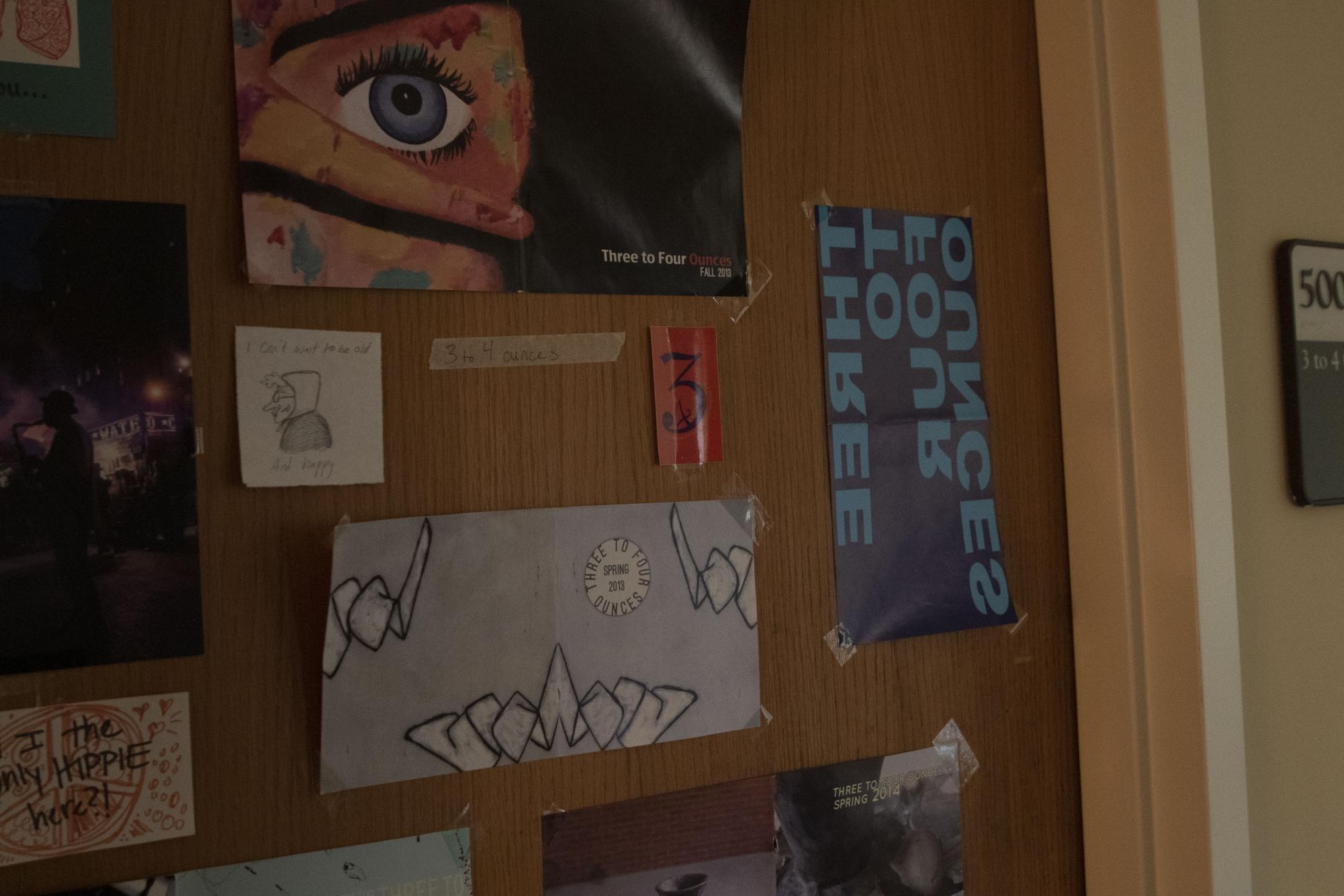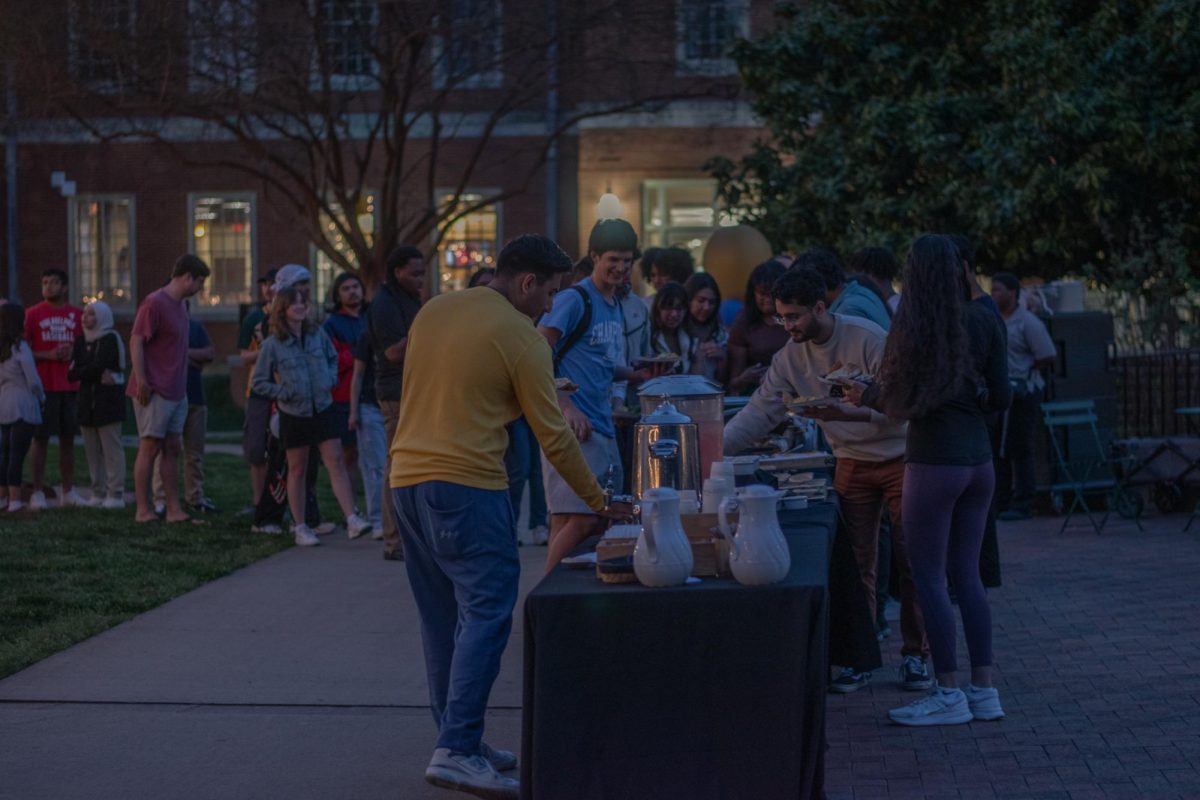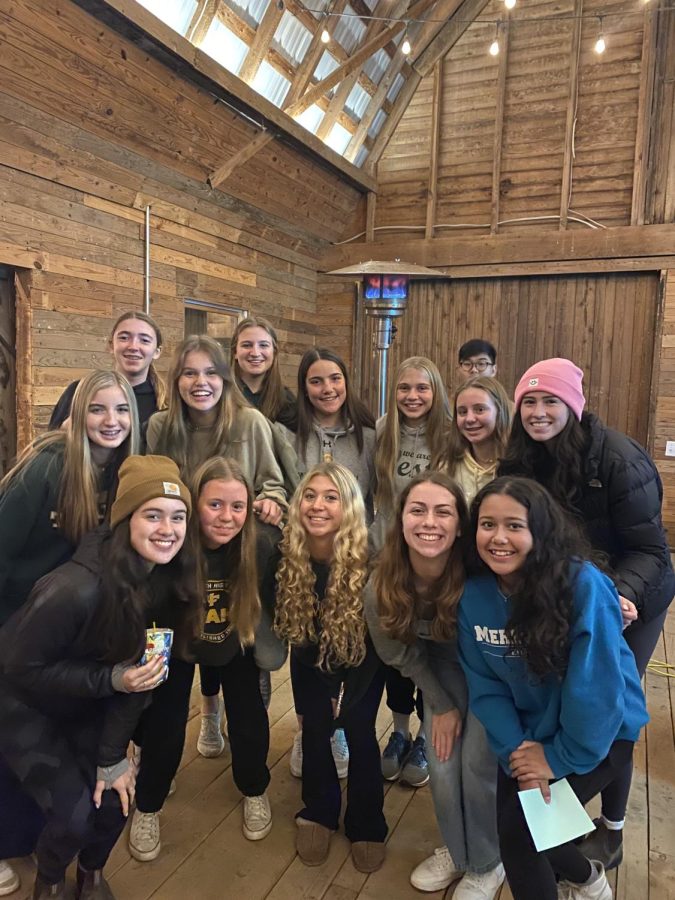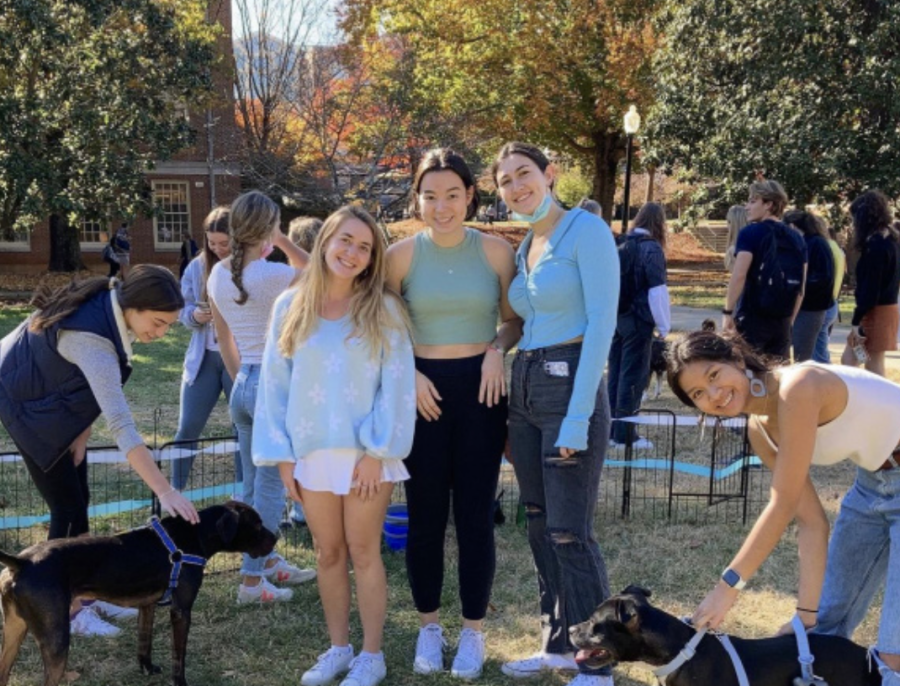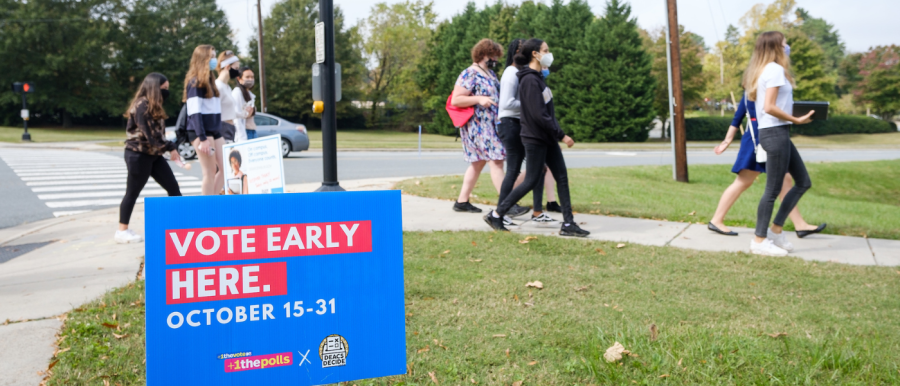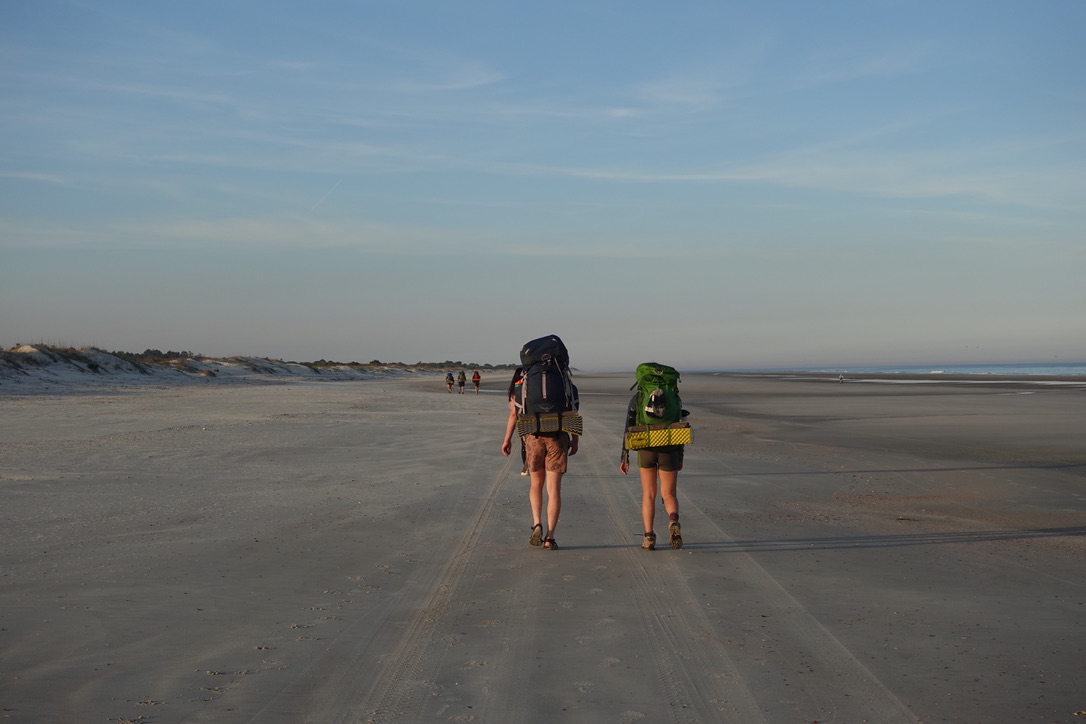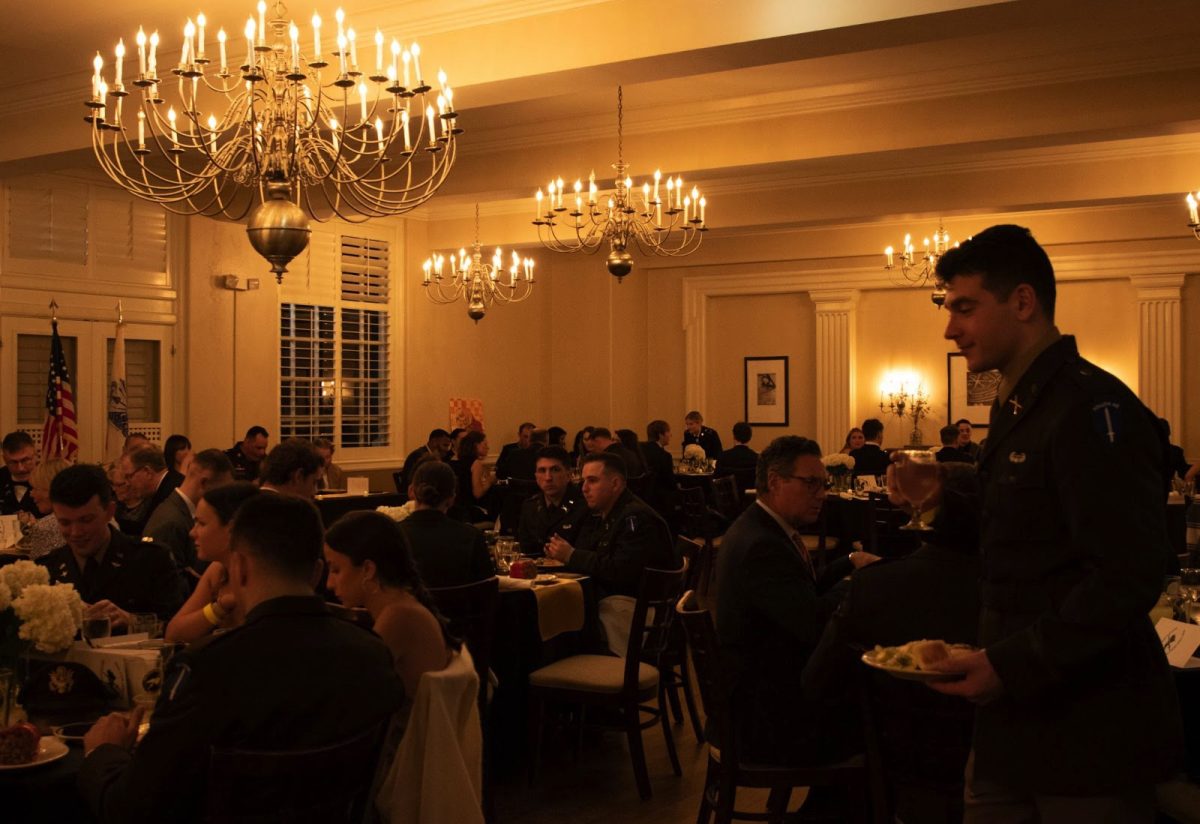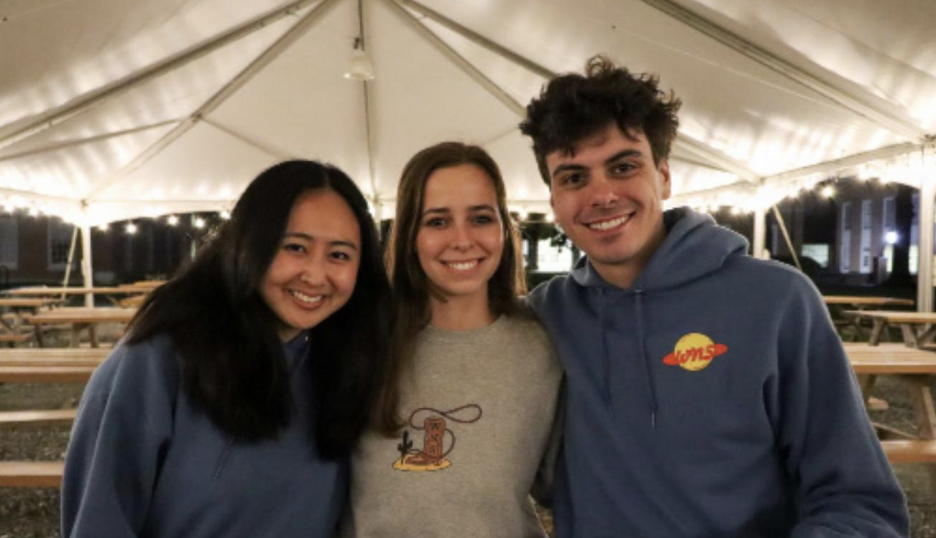When COVID-19 stopped the world, it did not spare the presses that publish Wake Forest’s oldest literary magazine Three to Four Ounces. From 2019 to the fall of 2021, Three to Four Ounces did not release a print edition.
After this intermission, the magazine began the process of revamping itself for both a new audience of Demon Deacons and a new reality — one in which digital media and the ability to pivot stood at the forefront of the publication’s future.
“I think it started in the 1880s, but because of COVID it kind of took a hiatus,” President of Three to Four Ounces Melina Traiforos said. “… The chief editor at the time, Aine Pierre, was trying to revitalize it, and that seemed like a really cool opportunity to shape something that could be really important going forward.”
To think about the future of Three to Four Ounces, the editorial board also had to consider the literary magazine’s past. The publication, which was formerly titled “The Student,” was founded in 1883 and is the oldest club on Wake Forest’s campus — existing decades before Wake Forest University made its move from Wake Forest, North Carolina to Winston-Salem, North Carolina.
“I actually heard about Three to Four Ounces before I even came to Wake [Forest] at my information session when I came for my tour, before I even got accepted,” sophomore Bella Santos, managing editor for the magazine, said. Santos, who had previous editorial experience with her high school literary magazine, described Three to Four Ounces as being integral in her decision to attend Wake Forest.
“The lady talked about the literary magazine and how it is the oldest organization at Wake Forest,” Santos said. “And I, at the time, was editor in chief at my high [school’s literary magazine], … so I really wanted to go to a school with a literary magazine. I immediately looked for Three to Four Ounces when I got on campus, and it’s one of the reasons I came to Wake [Forest].”
To help promote the magazine to a new class of students, many of whom had never seen the print edition before, the editorial board began publicizing the club through tabling events in Benson, reaching out to the creative writing department to spread the word during submission periods and hanging posters throughout the school. Three to Four Ounces also expanded their marketing efforts to those outside the realm of English-related majors and minors.
“I feel like a lot of students feel like they have to stick to the path they’re on, even if it’s not creative,” Santos said. “We’re kind of seeing a divergence between creative and STEM pathways. But [Three to Four Ounces] gives students an opportunity to reach out to their creative side or reignite or reunite with it, even if they’re on a less creative academic pathway.”
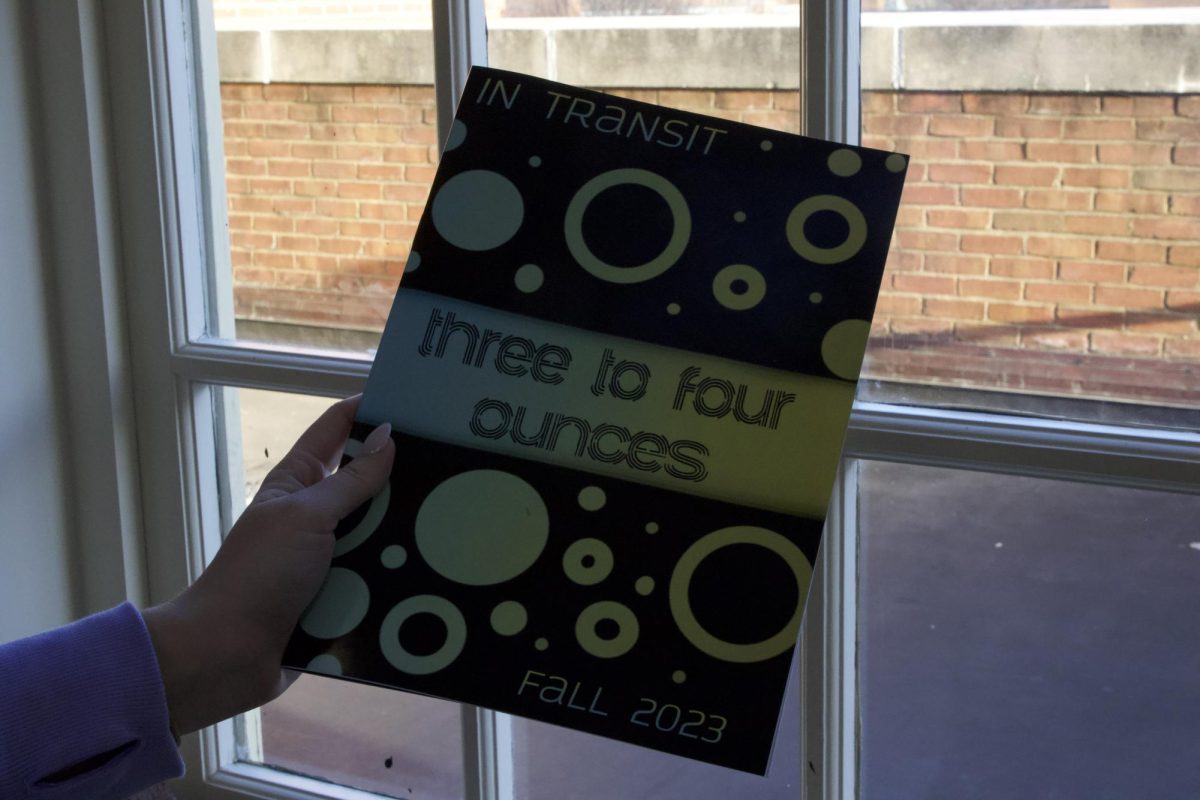
As Santos expressed, this type of creative work is representative of the passion and curiosity that defines Wake Forest students, regardless of their elected majors. Providing students with a creative outlet gives Three to Four Ounces a unique angle through which to analyze the student body’s view of contemporary issues, emotions and events.
“I think that something about college students is that we’re all very opinionated,” Traiforos said. “There’s always things going on on campus […]. Throughout history, there’s always been controversial things going on.”
As a result, looking back at past editions of Three to Four Ounces provides a historical record of the student body at the time, in times of turmoil, stability or dramatic change.
“We have old magazines,” Traiforos said. “I’m sure that if you went back there, you could find people’s feelings and opinions on events that have gone on throughout history since the magazine’s inception and … gather an archive of what Wake Forest students were thinking about what was going on in the world.”
Three to Four Ounces is also a vector for students to express their feelings on change and growth in their personal lives. The Fall 2023 Edition, titled “Second Thoughts,” invited students to share their original work reflecting on the “Ultra Contemporary” — defined by “our access to a never-ending source of information thanks to social media” — that makes it “too easy to feel disconnected from our experiences and existence in the past.”
This theme resonated with junior Sydney Pasceri, who decided to submit a memoir she had written about using the ocean to reconcile with the inevitable change that life brings.
“One thing that I always think about when I’m thinking about the ocean is how, whenever you go back, the ocean is a different body of water,” Pasceri said. “There’s an ancient Greek quote about how no man steps in the same river twice. And so I think about that a lot. And I think … the piece has a nostalgic tone — and grieving sounds like a strong word — but [I grieve] the summers I spent there. Now that I’m older, I can’t really do that anymore.”
No matter the circumstances at play that shape Wake Forest’s culture, Three to Four Ounces promises a literary escape that emphasizes the humanity behind writing and art. Across the seasons of change that sweep the Reynolda campus, the authenticity behind the publication remains intact — whether flipping through an archived edition of “The Student” or the most recent edition of “Three to Four Ounces.”
“Three to four ounces… [is] a quote by Don DeLillo,” Santos said. “… There’s an experiment that was done to see if the human soul has weight, and the scientists determined that it weighs three to four ounces. It’s been incorporated into so much classic American literature — that idea of a soul carrying weight. I thought it was so cool that the magazine took that out as the new title.”
Submissions for the Spring 2024 Edition of Three to Four Ounces, with the theme “Growing Pains,” are being accepted now through Feb. 18 via this link.


